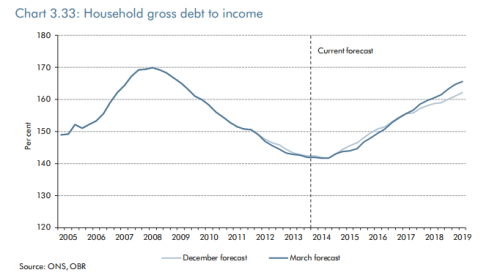Imagine if the government decided it was no longer going to tax you, and you were free to contribute a portion of your earnings towards national defense, the NHS or road upkeep. Would you like that? We should trust people with their money, right? Let’s take this further: why compel people to buy car insurance? It’s nanny-statism, right? Why a law to wear seat-belts? Don’t we trust people?
In actual fact, while we broadly trust people to make the right decisions, we also recognise that it benefits us all if people are compelled into collective decisions. The sum is worth far more than the parts individually, in other words. National defense, the NHS and other services wouldn’t be able to function properly if we relied on individual decisions alone.
Pensions are a bit like that. Until recently the government compelled people to buy pension annuities so they would get a regular income at retirement rather than a big lump-sum that they immediately spent. It protected them, protected communities in general, and was healthy for the economy. It wasn’t perfect but it worked.
But Chancellor Osborne introduced radical change to the pensions market on budget day, making it no longer compulsory to buy annuities. Whether you think people should be ‘trusted with their own money’ is now an ideological debate and one partly based on party politics: Tories and LibDems will defend their party leaders, but they should at least have the courage of their convictions to demand we extend this to other areas too like defense and NHS.
What concerns me is how these drastic changes will affect the British economy and create another bubble like the last one. And it’s more worrying that Labour are not opposing these changes. But we should, and here’s why.
Another debt fuelled bubble
After the Tories came into power in 2010, they promised that they would ‘rebalance’ the economy, focus on growing our exports and manufacturing, rather than the debt-fuelled excesses of the past.
The British economy has been built on excessive consumer spending and debt since the 80s, fuelled by rising house prices and financial speculation. As house prices rocketed up, people felt they could take out loans against the cost of their houses, even as the younger generation found it more difficult to get on the housing ladder.
We are now returning to this era, and the decision is deliberate. Osborne needs people to spend money and for house-prices to shoot up, so it inflates the economy. A more sustainable recovery would involve growing wages over the rising cost of living, but the chancellor doesn’t like asking businesses to pay out more in wages so he would rather give people the illusion they are getting richer.
This graph by the Office for Budget Responsibility neatly shows projections:
It shows how household is projected to rise again, and newer projections see that rising even faster.
The changes to pensions will fuel this bubble. As people have the freedom to spend their lump-sum at retirement, many will spend it on goods and property speculation. This means house prices will shoot up – creating another bubble and making it more difficult for the next generation to buy a house.
And what happens to people who fritter the money away before they die? The rest of us will have to pick up the cost of that.
This isn’t to say the annuities market is perfect: there are lots of sensible reforms on offer to make the industry more transparent and work for ordinary people. But these reforms weren’t even debated or tried it – these huge changes were simply thrust on people without any discussion.
The Chancellor is doing this because he wants people to spend more, even at the risk of taking on more debt, and because he is prioritising pensioners over the next generation.
It may be helpful for shoring up the UKIP vote, but it stores up massive trouble for the future. The Labour party should be opposing these changes, and opposing them strongly.





More from LabourList
Government announce SEND reform in schools white paper
SPONSORED: ‘Industrial hemp and the challenge of turning Labour’s priorities into practice’
‘A day is a long time in politics, so we need ‘action this day’’